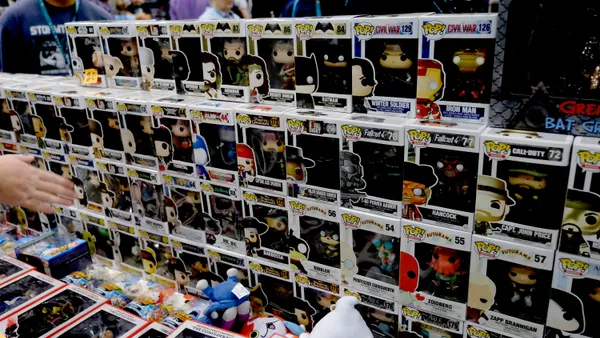Dive Brief:
- Supply chain constraints and difficulties in acquiring battery feedstocks could constrain electric vehicle adoption more broadly, Tesla CEO Elon Musk acknowledged during the company's Q1 earnings call in April.
- Tesla has been coping with supply chain challenges for over a year, including chip shortages, drastic increases in certain raw material prices, as well as recent COVID-19 outbreaks that have been affecting its supply chain and factory operations, the company reported. During the call, Musk urged entrepreneurs to enter the lithium business.
- "What's sort of keeping our costs down, at least in the short term, is that we have long-term contracts with suppliers," Musk said, but those long-term contracts will eventually run out and then the company could start to see potentially significant cost increases.
Dive Insight:
Tesla isn't alone in terms of facing supply chain squeezes. Solar and storage developers across the country are witnessing delayed and canceled projects as a result of labor and equipment shortages, transportation backlogs as well as the soaring price of lithium, a key raw material in the main batteries currently used for electric vehicles and energy storage. Storage developers have had a tough time procuring lithium-ion batteries as a result. Solar deployments in the U.S., meanwhile, didn't meet expectations for 2021 because gigawatts' worth of projects were delayed in part due to supply chain challenges.
Tesla is placing an emphasis on diversifying battery chemistries, and nearly half of the vehicles it produced in the first quarter had lithium iron phosphate batteries, which contain no nickel or cobalt.
The company's energy storage deployments touched 846 MWh in the first quarter, a 90% year over year increase, but the ongoing supply chain challenges have limited its growth and demand for its storage products remains higher than its production capacity, Tesla reported. Tesla is ramping up production at a Megapack factory, which produces battery units, to meet this demand. Solar deployments, meanwhile, decreased by 48% year over year, to 48 MW in Q1, driven largely by import delays.
Right now, the mining and refining of lithium appears to be the key limiting factor to "accelerating the advent of a sustainable energy future," Musk told analysts on Wednesday's call.
"It certainly is responsible for quite a bit of cost growth in the sales. It's, I think, the single biggest cost growth item right now certainly on a percentage basis," he added.
There isn't a shortage of lithium ore, Musk pointed out — lithium itself is a common element, but it needs to go through "a whole series of refinement steps" that requires a lot of industrial equipment before it can be used in a battery cell. He encouraged entrepreneurs to enter the lithium space, saying, "do you like minting money? Well, the lithium business is for you."
Lithium prices remain high because EV demand has continued to grow and supply hasn't been able to keep up, Morten Lund, partner with Stoel Rives, said. However, he views this as a temporary issue, somewhat comparable to the silicon shortages that the solar industry experienced in the past.
"It was just a matter of suddenly, solar became very attractive and there weren't enough silicone facilities. So we built some more and three years later, silicone prices plummeted," he said.
Similarly, there's a general understanding now that EVs are here to stay, which gives people who might be looking to invest in lithium facilities an excuse to do so, he added.
"I fully anticipate this will result in a bit of a gold rush on lithium for the next couple of years… and that will drastically drop lithium prices, which in turn will spur further development of batteries and EVs," he said.















